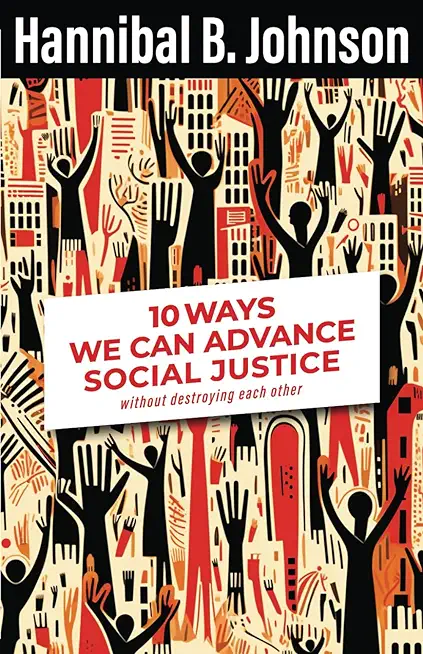
Absent the wholesale embrace of social justice, we risk succumbing to human tendencies to stereotype, "otherize," and scapegoat. Those tendencies, left unchecked, lead to horrific ends.
When we see ourselves in others, we understand that our shared humanity eclipses all else. Through our disagreements, we must never doubt the dignity and worth of the other.
Certain facts and factors that cause misalignments in the social order-inequality and inequity-social injustice-but there are ways to intervene and interrupt them. This book offers 10 ways we can advance social justice.
We pay a cost for failing to internalize and act upon history's lessons. For example, our history teems with examples of fractious relations among racial, ethnic, and cultural groups and an overarching white supremacist ideology that places some at an advantage at the expense of others. Recognizing our shared humanity-and the power of "we"-and rectifying disparities and inequities are among the chief aims of social justice initiatives.
Through critical thinking, we best position ourselves to tackle seemingly overwhelming social justice issues. To be ready, we must know, care, and act: know-look at ourselves, others, events, and institutions; care-reflect on recurring inequalities and inequities; and act-work on solutions to effect and advance meaningful, measurable, maintainable solutions. Critical thinking animates the three core activities necessary for social justice advancement: introspection, engagement, and advocacy.
Achieving social justice is an aspirational pursuit-an ongoing journey that can be fraught with peril and disappointment. It is nonetheless an odyssey worth taking-a quest so many of us have no choice but to embrace. Introspection, engagement, and advocacy are essential stops along the way.
Examine yourself. Plug in. Speak truth.
member goods
listens & views

SECULAR CHORAL MUSIC 1
by HERZOGENBERG / DECKERT / ENS CANTISSIMO / UTZ
COMPACT DISCout of stock
$19.25






